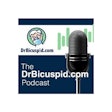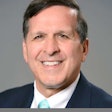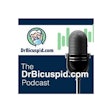The ADA isn't ready to support either of the U.S. healthcare reform bills that passed in Congressional committees last week, the organization's president, John Findley, D.D.S., said in a "Dear Colleague" letter this week.
The Senate Committee on Health, Education, Labor, and Pensions (HELP) and a combination of three House committees last week passed bills with provisions for dentistry. The bills create government-run insurance plans that would include dental benefits for children and would compete with private insurance.
That is "our most pressing concern," Dr. Findley wrote, because "the whole concept of a public plan remains troubling" and it's not clear how dentists would be affected. The ADA would oppose any requirement that dentists participate and any provision that dictated fees, he wrote. The ADA wants the bills amended to stipulate that dentists participating in public plans would be paid at market rates.
The American Medical Association has endorsed the Tri-Committee House bill, reversing its decades of opposition to government-run health plans.
The bill includes several provisions that would affect dental professionals. It would create an optional "premium-plus" plan that provides adult dental care. The bill would also provide for more training of dentists, encourage collaboration between oral and medical healthcare providers, establish an advisory committee on health workforce issues that includes oral health professionals, and begin school-based clinics with optional dental coverage.
The Senate HELP committee bill also includes several oral health provisions. It provides for public education on oral health, demonstration projects on caries management, and school-based sealant programs. It increases surveillance of dental disease -- despite objections from ranking Republican members of the committee. The bill also expands training programs for dentists. And it creates a demonstration project for alternative dental professionals, such as dental therapists, advanced hygienists who practice independently, or community dental health providers.
While both bills raise the cutoff for Medicaid eligibility, neither of them increases reimbursements for dentists who participate. And neither mandates adult dental benefits in Medicaid, a goal the ADA has mentioned in previous communications, though not in Dr. Findley's letter.
More versions are expected from other committees, and the ADA is still trying to include some of its own ideas, Dr. Findley said. Chiefly, the organization is trying to attach language to a bill being developed in the House Energy and Commerce Committee that would increase federal reimbursement to states that significantly expand access to Medicaid dental benefits and increase reimbursement to dentists through Medicaid to market rates.
Finally, the ADA is supporting amendments that would exempt dental offices and other small businesses from a requirement to provide health insurance for employees, Dr. Findley wrote.
The organization reported spending $680,000 in the second quarter of this year on lobbying, up from $446,489 in the same period last year.
Copyright © 2009 DrBicuspid.com


















